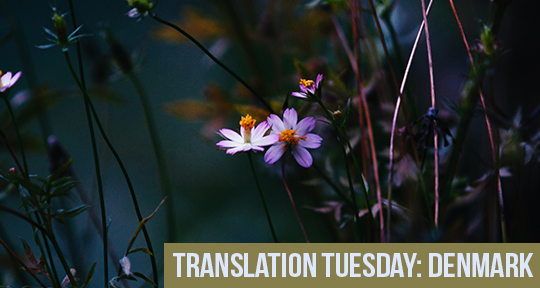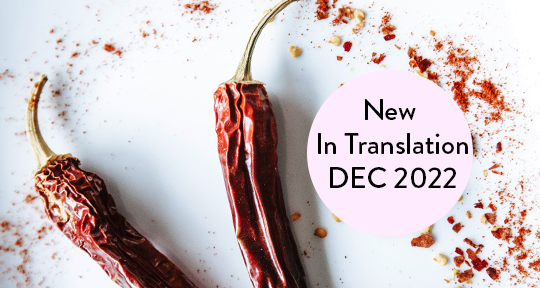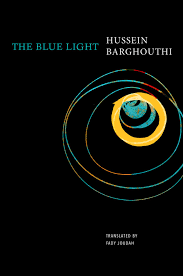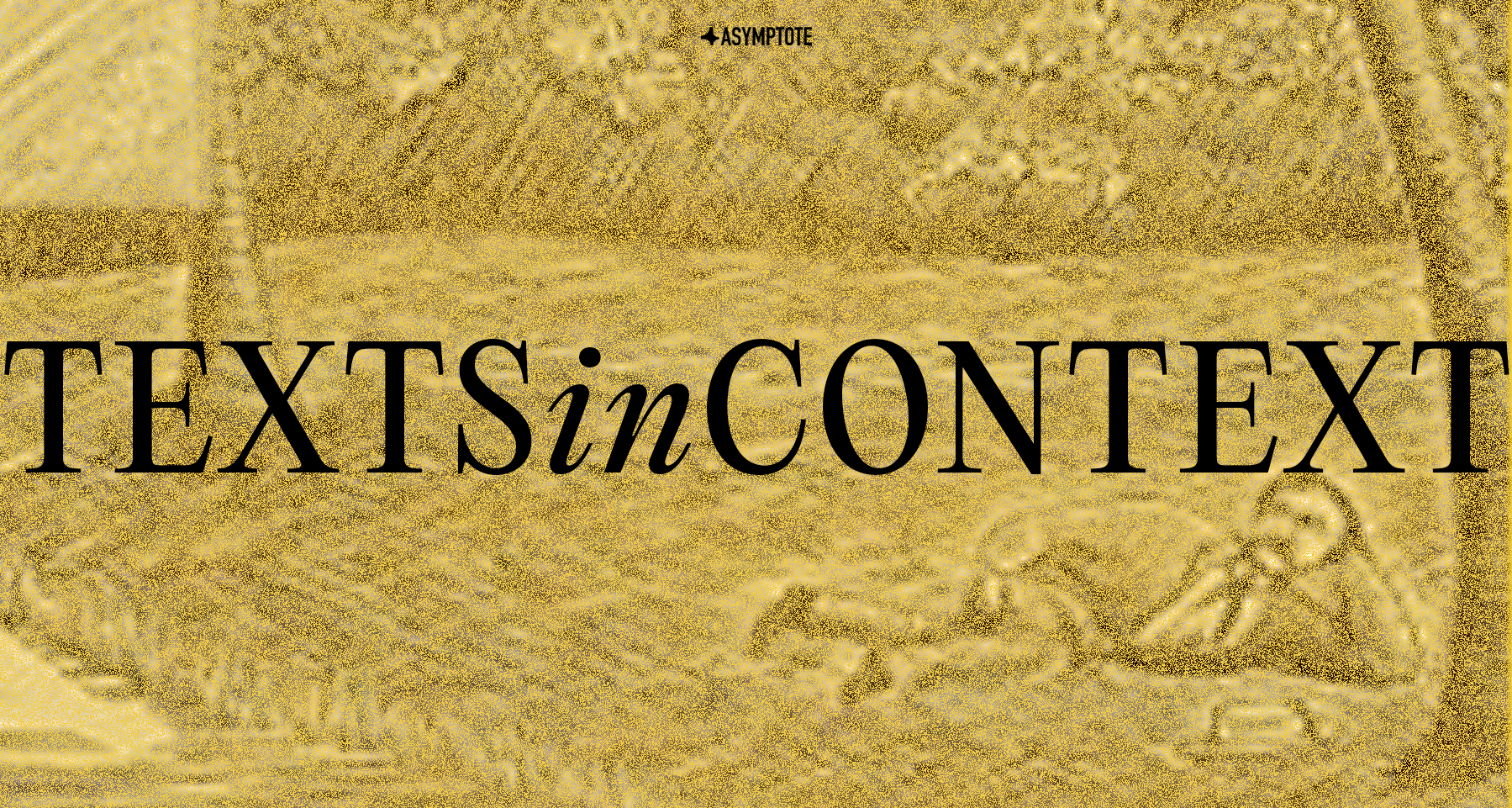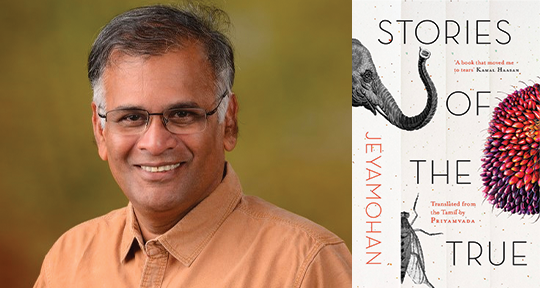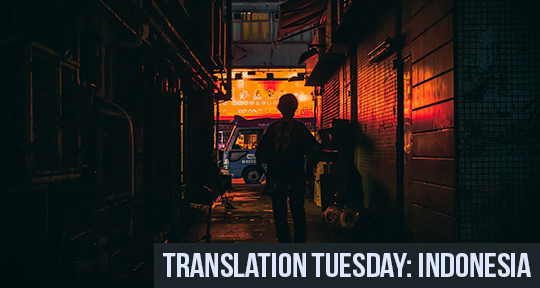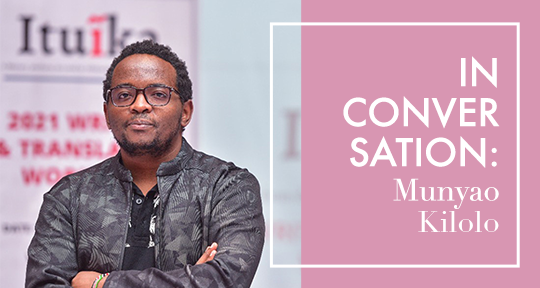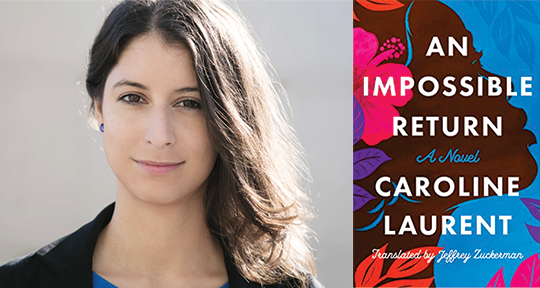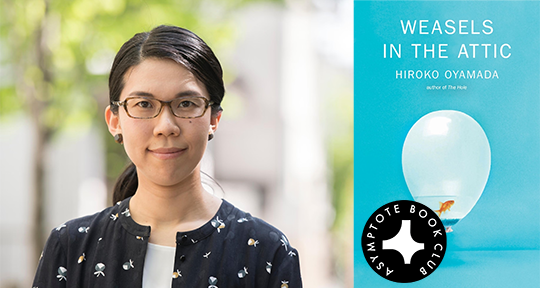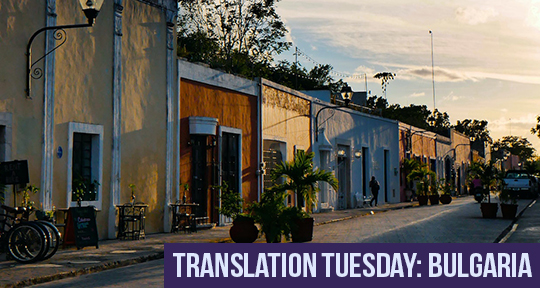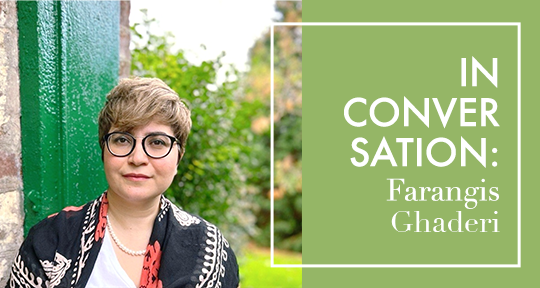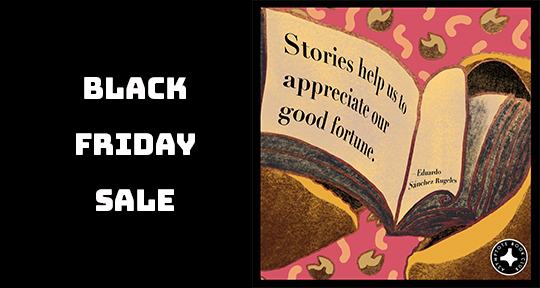In our final Translation Tuesday showcase for the year, a lugubrious husband finds himself disenchanted with his marriage as his wife relates the tale of her former carefree life to their friends. Sissel Bergfjord’s beautiful story reveals a psychological truth about what remains unspoken in a loveless marriage. In Adrienne Alair’s sensitive and musical translation, a night of drinking turns up more revelations about the protagonist’s interior conflict than he asked for.
He didn’t like her when she had been drinking. She wasn’t someone you could say those things about: My wife drinks, or, My wife drinks too much. Tove was above all healthy and sensible, not because she was uptight or tried to proselytize or anything. She was a woman who hardly ever drank, let alone too much. But when she drank, the few times she did, it quickly became too much for him. Like now, as she sat in the yellowish glow of the Poul Henningsen lamp (and how did it look, really, to have a Poul Henningsen lamp hanging in something that resembled a woodshed) at Karen and Bodil’s place, her cheeks flushed, almost glistening, after several glasses of red wine. And now port! Her eyes shone in a way he very rarely witnessed, and that should make him happy; he should have a couple more glasses himself and get in the mood, follow her to the place she was in. Maybe he could even get her so livened up that it could lead to something. He had to admit, though, that this energy, this revitalization and rarely-felt mood of excitement were contagious at first, but then he remembered that he had been disappointed so many times, that he had long since resigned himself to a life devoid of eroticism.
He could not remember when they had last either made love or talked about the fact that they hadn’t. He had previously tried different tactics to ignite the spark in her: a trip to the opera, a hotel stay with spa treatments and foot massages, a surprise now and then. He had bought thousands of kroner worth of flowers to absolutely no avail. He didn’t even know if she had liked them, the bouquets—carnations, roses, tulips, lilies—she thanked him, smiled, and put them in a vase on the dining table, but he had not had any luck with getting closer to her because of it, and in bed everything remained as it had been for many years. She read from some book before she said goodnight, closed the book and set it on the nightstand, put in her earplugs and turned off the light. READ MORE…

